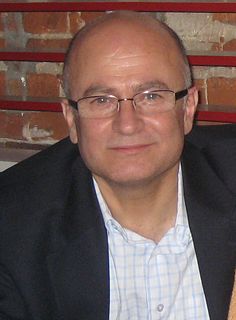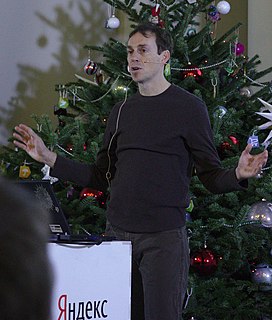A Quote by Emily Dickinson
Saying nothing... sometimes says the most.
Related Quotes
A poet is no rattlebrain, saying what comes uppermost, and, because he says every thing, saying, at last, something good; but a heart in unison with his time and country. There is nothing whimsical or fantastic in his production, but sweet and sad earnest, freighted with the weightiest convictions, and pointed with the most determined aim which any man or class knows of in his times.
One of the most painfully inauthentic ways we show up in our lives sometimes is saying "yes" when we mean "no," and saying "no" when we mean "hell yes." I'm the oldest of four, a people-pleaser - that's the good girl straitjacket that I wear sometimes. I spent a lot of my life saying yes all the time and then being pissed off and resentful.
So the HP guy comes up to me (at the Melbourne conference) and he says, 'If you say nasty things like that to vendors you're not going to get anything'. I said, 'No, in eight years of saying nothing, we've got nothing, and I'm going to start saying nasty things, in the hope that some of these vendors will start giving me money so I'll shut up'.
It was not in my nature to be an assertive person. I was used to looking to others for guidance, for influence, sometimes for the most basic cues of life. And yet writing stories is one of the most assertive things a person can do. Fiction is an act of willfulness, a deliberate effort to reconceive, to rearrange, to reconstitute nothing short of reality itself. Even among the most reluctant and doubtful of writers, this willfulness must emerge. Being a writer means taking the leap from listening to saying, "Listen to me."
If someone smells a flower and says he does not understand, the reply to him is: there is nothing to understand, it is only a scent. If he persists, saying: that I know, but what does it all mean? Then one has either to change the subject, or make it more abstruse by saying that the scent is the shape which the universal joy takes in the flower.






































